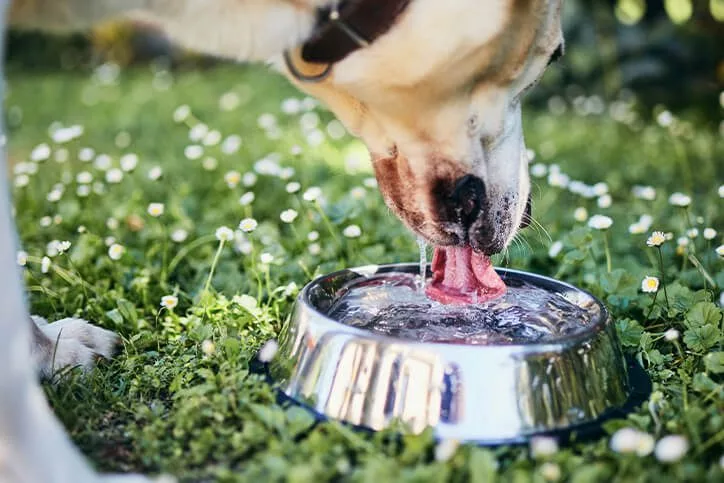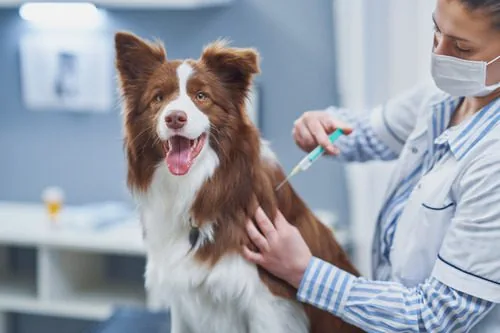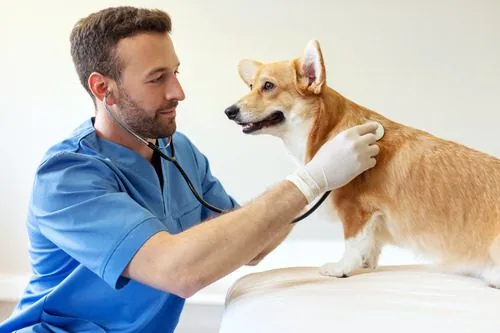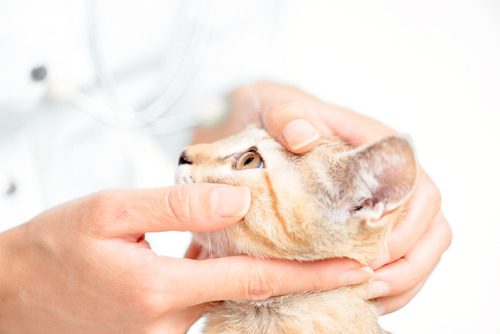10 Signs of Heat Stroke in Dogs in Wilton, NY
Your dog may love lounging out in the backyard on a sunny day, but too much sun and heat can be harmful to their health. Heat stroke is an issue for dogs, just like it is for us humans. But what about cats? Well, if your feline spends time outside, you can be assured they are better-equipped to handle the heat (though you should still keep an eye on them and make sure they can access water when they need it). Cats were originally desert dwellers, so heat is not as big of a problem for them!
Dogs are more susceptible to heat stroke than cats, and while the condition is preventable, it isn’t always easy to recognize when a pet is in danger. There are times when we take our dogs’ heat tolerance for granted, and the signs of heat stroke in dogs can vary quite a bit. So, how can you let your pup enjoy summertime without keeping them shut indoors all day, every day?
Read on to learn about dog heat stroke in Wilton, NY, what the warning signs look like, and how you can take the necessary precautions to protect your companion from this significant summer hazard!

What are the Signs of Heat Stroke in Dogs?
The signs of heat stroke in dogs manifest in different ways. The key is to be observant of your pet’s behaviors, and to know when something isn’t quite right. Even if only one of the symptoms listed below is apparent, take that symptom seriously and get in touch with our animal hospital right away!
Here are the most common signs of heat stroke in dogs:
- Panting heavily and continuously
- Having difficulty breathing (gasping, wheezing)
- Acting confused and disoriented, as if they are unsure of where they are
- Moving sluggishly
- Reluctant or unable to stand, walk
- Drooling heavily
- Vomiting and/or diarrhea
- Straining/unable to urinate
- Collapse
- Loss of consciousness
Situations that Put Your Dog More at Risk for Heat Stroke
We know that heat stroke is a natural risk for our dogs in the summer, but certain situations, many of which are taken for granted, can elevate that risk.
Below are some of the more high-risk situations you should try to avoid whenever possible to keep your dog safe!
Leaving Your Dog in a Hot Car
No pet owner wants to put their dog in a dangerous situation. However, each year, many dogs (and even small children) are left in their vehicles without adequate air conditioning and shade. In just 10 minutes, your car’s interior can increase from 70 degrees F to 90!
Letting Your Dog Walk on Hot Asphalt
Sidewalks and streets can get extremely hot on sunny summer days. If the asphalt is too hot for you to walk on barefoot, then it’s also too hot for your pet. Dogs can burn their paw pads on hot pavement, and they may overheat due to their closer proximity to the ground.
When walking your dog, let them walk on the grass instead, or walk them during a cooler part of the day, when the asphalt is also cooler.
Letting Your Dog Over-Exert Themselves Outside
Playtime is important for your pup. But if it’s hot and humid, they’ll tire out quickly, and this can increase their risk for heat exhaustion, and eventually even heat stroke. If possible, continue their playtime inside where it’s cooler.
Forgetting to Give Your Pet Water
You let your dog outside every day to do their business, and with this repetitive, daily action, it’s easy to slip up and forget to make sure they have plenty of water nearby if they ever need it. Make it a rule to always leave fresh water outside with your pet, even if they will only be outdoors for a few minutes.
Leaving Your Dog Without Shelter
Our dogs don’t like having the sun beating down on them any more than we do. Plus, dogs can be prone to sunburn just like humans, especially if they have a light and/or fine, thin coat. If your yard doesn’t have a shady spot and your pet needs to stay outside for a little while, create a makeshift shelter for them so they can get out of the sun.
Not Alerting Your Vet if Your Dog Seems Unwell
Our veterinarians are always here to help you and your pet. Whatever questions or worries you have, we want to hear them; your companion is important to us, too. Our animal hospital team can help you figure out what might be wrong with your pup, and what you can do next to keep them out of danger. Immediate medical care might be necessary, or your pet might be able to wait until the following day for a checkup. Regardless, it’s best not to leave their safety to chance. Give us a call at (518) 587-3832.
Are Certain Dog Breeds More at Risk for Heat Stroke?
Yes, some dog breeds are, unfortunately, more vulnerable to heat exhaustion and heat stroke. These breeds include:
- English Bulldogs
- French Bulldogs
- Boxers
- Boston Terriers
- Pugs
- Pekingese
- Shih Tzus
These breeds all have one crucial trait in common that puts them more at risk for heat stroke, and that is having a flattened face. This characteristic is officially known as “brachycephalic,” and it shortens the dogs’ airways and obstructs their breathing. Because of this, they are unable to pant as effectively as other breeds to cool themselves down.
Fortunately, with extra precautions, your brachycephalic dog can still enjoy warm, sunny weather. Just be super careful with them and avoid any of the scenarios listed above that could increase their risk for heat stroke. And don’t forget to call Saratoga Veterinary Hospital at (518) 587-3832 for more information!
Recent Posts
Lyme Disease Vaccines for Dogs
Lyme Disease Vaccines for Dogs Protecting your dog from Lyme disease is an essential step in supporting…
Kennel Cough Vaccine
Kennel Cough Vaccine Kennel cough is a highly contagious respiratory condition that can affect dogs of all…
What Is the Pet Insurance Waiting Period?
What Is the Pet Insurance Waiting Period? When you decide to invest in pet insurance, you may…
How Does Pet Insurance Work?
How Does Pet Insurance Work? Understanding how pet insurance works can help you make informed decisions about…
Cat Conjunctivitis: Should You See the Vet for Feline Pink Eye?
Cat Conjunctivitis: Should You See the Vet for Feline Pink Eye? Cat conjunctivitis, commonly known as feline…
About Saratoga Veterinary Hospital
Saratoga Veterinary Hospital is proud to serve as your local veterinarian of choice in WIlton, NY and the surrounding areas. Since its founding in 1973 by Dr. Sofarelli, our animal hospital’s main goal has been to strengthen the human-animal bond with exceptional veterinary medicine and client services.







